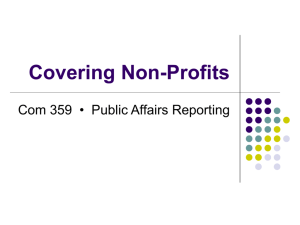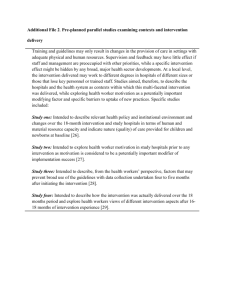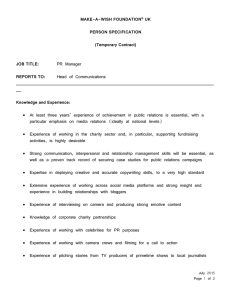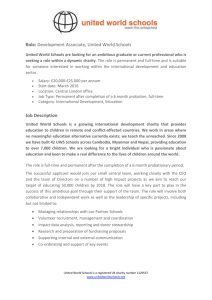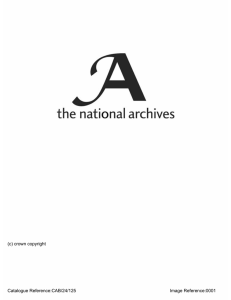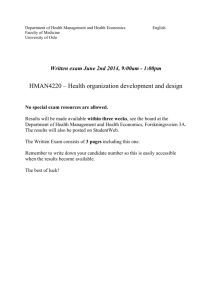TAX BREAKS FOR CHICAGO’S NON-PROFIT HOSPITALS NEARLY
advertisement
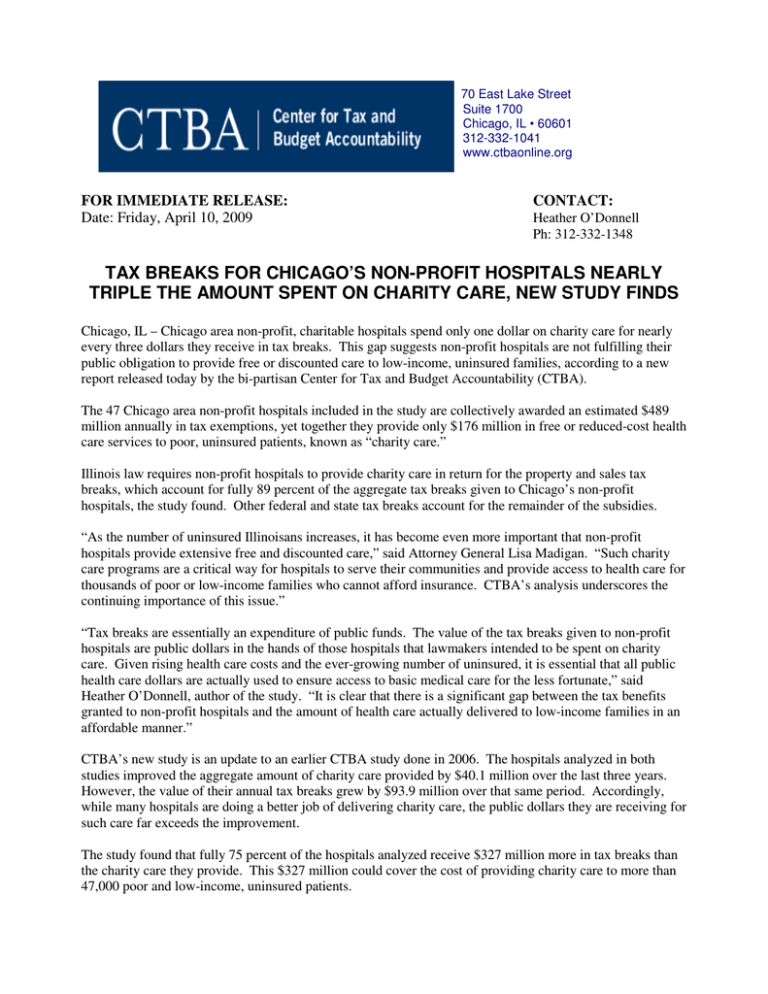
70 East Lake Street Suite 1700 Chicago, IL • 60601 312-332-1041 www.ctbaonline.org FOR IMMEDIATE RELEASE: Date: Friday, April 10, 2009 CONTACT: Heather O’Donnell Ph: 312-332-1348 TAX BREAKS FOR CHICAGO’S NON-PROFIT HOSPITALS NEARLY TRIPLE THE AMOUNT SPENT ON CHARITY CARE, NEW STUDY FINDS Chicago, IL – Chicago area non-profit, charitable hospitals spend only one dollar on charity care for nearly every three dollars they receive in tax breaks. This gap suggests non-profit hospitals are not fulfilling their public obligation to provide free or discounted care to low-income, uninsured families, according to a new report released today by the bi-partisan Center for Tax and Budget Accountability (CTBA). The 47 Chicago area non-profit hospitals included in the study are collectively awarded an estimated $489 million annually in tax exemptions, yet together they provide only $176 million in free or reduced-cost health care services to poor, uninsured patients, known as “charity care.” Illinois law requires non-profit hospitals to provide charity care in return for the property and sales tax breaks, which account for fully 89 percent of the aggregate tax breaks given to Chicago’s non-profit hospitals, the study found. Other federal and state tax breaks account for the remainder of the subsidies. “As the number of uninsured Illinoisans increases, it has become even more important that non-profit hospitals provide extensive free and discounted care,” said Attorney General Lisa Madigan. “Such charity care programs are a critical way for hospitals to serve their communities and provide access to health care for thousands of poor or low-income families who cannot afford insurance. CTBA’s analysis underscores the continuing importance of this issue.” “Tax breaks are essentially an expenditure of public funds. The value of the tax breaks given to non-profit hospitals are public dollars in the hands of those hospitals that lawmakers intended to be spent on charity care. Given rising health care costs and the ever-growing number of uninsured, it is essential that all public health care dollars are actually used to ensure access to basic medical care for the less fortunate,” said Heather O’Donnell, author of the study. “It is clear that there is a significant gap between the tax benefits granted to non-profit hospitals and the amount of health care actually delivered to low-income families in an affordable manner.” CTBA’s new study is an update to an earlier CTBA study done in 2006. The hospitals analyzed in both studies improved the aggregate amount of charity care provided by $40.1 million over the last three years. However, the value of their annual tax breaks grew by $93.9 million over that same period. Accordingly, while many hospitals are doing a better job of delivering charity care, the public dollars they are receiving for such care far exceeds the improvement. The study found that fully 75 percent of the hospitals analyzed receive $327 million more in tax breaks than the charity care they provide. This $327 million could cover the cost of providing charity care to more than 47,000 poor and low-income, uninsured patients. Cook County operates a health care system that provides medical care to some of the poorest individuals living throughout Chicago and the metropolitan area, and therefore has a particularly strong interest in making sure non-profit hospitals deliver an adequate amount of charity care in exchange for the taxpayer dollars they receive. “CTBA’s analysis is crucial to achieving Cook County government’s goal of providing transparency in how taxpayer dollars are being used,” said Cook County Commissioner Roberto Maldonado. “And once we, as elected officials, have honest, objective information it is our responsibility to protect uninsured and underinsured residents of Cook County who are systematically being denied access to necessary medical care by private hospitals. In June, I am introducing an ordinance that will address this crisis in charity care.” CTBA is an independent, non-profit fiscal policy think-tank that is dedicated to promoting fair, efficient and sustainable tax policies for the people of Illinois. This study was funded from CTBA’s general operating funds. For a full copy of the study, please visit http://www.ctbaonline.org.
